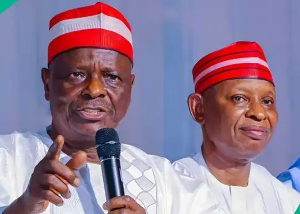The International Monetary Fund, IMF yesterday said that the ongoing economic reforms in Nigeria must be holistic to produce the right impact in terms of curbing inflation and improving welfare.
The IMF also commended the decision of the Central Bank of Nigeria, CBN, to remove the foreign exchange restrictions on 43 items, saying such restrictions create ‘unhelpful distortions’
Director, Africa Department, IMF, Abebe Selassie, stated this at the Africa Regional Economic Outlook press briefing in the ongoing World Bank/IMF Annual Meetings in Marrakesh, Morocco.
While commending the recent decisions of the Federal Government to remove fuel subsidy and the unification of official exchange rates, Selassie averred that these measures must be complemented with tight monetary and fiscal policies.
Abebe also said that Nigeria’s debt stock was manageable generally, and there was no debt discussions that are going on, debt profiling or debt restructuring on Nigeria,
He however stressed that the most important cause of the pressures was the fact that the government does not generate enough tax revenue for all the services it needs to provide and hence debt service as the ratio of revenue is high and does not allow much room to spend on other issues.
He said: “In Nigeria the most important cause of the pressures is the fact that the government does not generate enough tax revenue for all the services it needs to provide. Interest payment as a share of revenue is very high and not leaving much room to spend on other issues, that is the key issue that needs to be worked on.
“While there is not enough tax revenue, I think in the past reliance on oil when prices were high and second is the subsidy regime which also implies and entails lots of government resources being directed where they should not be. “These are all interlinked issues including causing some of the inflation that you see because given the difficulty to tap the international capital market, the government has had to rely more on domestic financing,which of course has crowded out the private sector and put constraints on monetary injections which has weakened the exchange rate.
“You have a medley of things rooted in the fiscal challenges that Nigeria is facing in not having tax revenue. At the same time, the country has incredible potential and we have seen reforms moving in the right direction in recent months.
Holistic Reforms
“What is needed, we feel, is making the reforms holistic and help reinforce each other just as things were not reinforcing each other in the past, there is scope to make the reforms reinforce each other. So, the exchange rate reform that the government did was very welcome in trying to unify the rates.
“Similarly, the fuel subsidy will not help or stick unless they tighten monetary policy. Unless you are also doing something to mobilise more tax revenue.
“So, a holistic package of reforms is what is needed and we have to give a bit of time to the new administration also. The CBN governor has just been appointed, and the Minister of Finance has only been appointed a few weeks. So we are hopeful that they will move in the right direction and we stand to provide every policy advice that the government needs.
Debt stock manageable
Speaking of the challenge posed by the country’s debt stock, Selassie, said, “The assessment of debts should not be based on the nominal value of a debt stock but on how it relates to many other economic variables. “It’s at the highest level because you mention it in naira terms but as a ratio to GDP and as a ratio to many other indicators is what you have to look at. When we look at the debt in Nigeria, our sense is that the stock is manageable in general, it is the debt servicing that is much more difficult and the debt service is hampered by the country not generating enough non-oil tax revenues. And I think that is by far the most important area of work and reform there is for any administration in Nigeria.”
Commends CBN
While commending the CBN on the removal of foreign restrictions on 43 items, Selassie, said, “Our view has always been in Nigeria, and in many other cases, many economies are so sophisticated and complex, that I don’t think that these kinds of restrictions work. The best way to manage a modern economy for government authorities is to have fiscal policy lever and monetary policy lever.
Whether we call these fiscal policy lever or monetary policy lever, it is to try and use those to affect the kind of policy outcome you have rather than going and saying I don’t like these goods and so I don’t want it to come in, that tends to create an unhelpful distortion. “Of course, there are other tax policies you can also use if you really want to lean against certain types of import etc. In general, I think the direction CBN has moved in is a helpful one”.
Policy Coordination
Stressing the need for fiscal and monetary policy coordination, Selassie, said: “I think when we pointed out that the adjustment and correction to the exchange rate gap were necessary but not sufficient is unless you underpin it with tighter monetary policy conditions.
Because if monetary policy conditions are loose it creates a lot of liquidity, then it’s going to create inflation and then of course exchange rate will inevitably move. So, unless you are tightening monetary conditions, it would not be enough.
“You have to support monetary policy with some fiscal policy tightening. The fact that the government is absorbing a lot of the liquidity to finance the large deficit it has is causing monetary policy to be loose. So that is the type of holistic and coordinated reform package Nigeria is going to need. And Nigeria has incredible politicians and policymakers, it is something that can be done and it is the political will and the decision to move in that direction that is needed”.
Business News of Sunday, 15 October 2023
Source: www.vanguardngr.com













